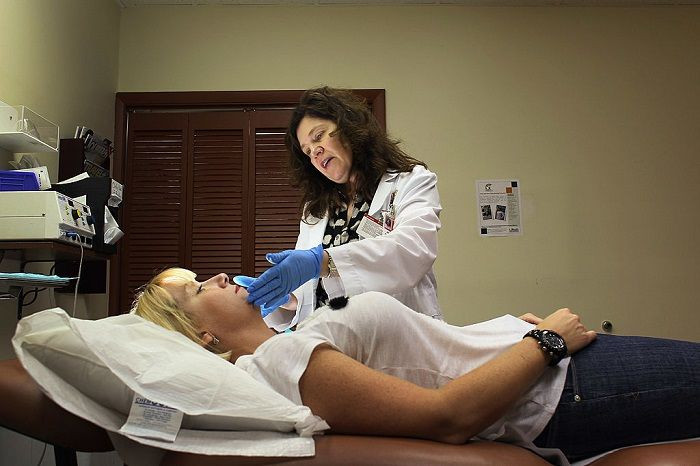Melanoma Patients With Untreated Severe Sleep Apnea May Have Most Aggressive Form Of Skin Cancer

Sleep apnea has been linked to an increased risk of developing certain health conditions if left untreated, including hypertension, heart disease, diabetes, and depression. Now, new research presented at the ATS 2016 International Conference suggests that not treating this condition may also increase the aggressiveness of a deadly form of skin cancer.
Researchers from 24 teaching hospitals that are part of the Spanish Sleep and Breathing Network conducted a study involving 412 patients with confirmed cases of cutaneous malignant melanoma. The average age of the group was 55. A number of factors were analyzed to determine the stage of melanoma and indicate the patients’ prognosis. The participants then underwent a sleep study to determine the severity of their sleep apnea.
The data showed that patients diagnosed with the most aggressive form of the skin cancer had a higher prevalence and severity of obstructive sleep apnea. This relationship held true regardless of age, gender, body mass index (BMI), skin type, sun exposure and other risk factors for melanoma. However, it’s important to note that people with sleep apnea — approximately 1 in every 15 Americans — will not automatically develop skin cancer.
"The relationship between sleep apnea and heart disease, as well as with automotive accidents, is already well established," lead author Dr. Miguel Ángel Martinez-Garcia said in a statement. "Based on our study, it seems a relationship between sleep apnea and cancer may also exist. It is very important, however, that people with sleep apnea do not infer that they will necessarily develop cancer."
Skin cancer is the most common form of cancer in the U.S., with nearly 9,000 people in the U.S. diagnosed every day, according to the American Academy of Dermatology. Melanoma, a less common, but more serious form of skin cancer, accounts for 1 percent of all skin cancer cases. Despite its relatively small prevalence, melanoma accounts for the vast majority of skin cancer deaths.
"Our findings have implications for both patients and physicians," Martinez-Garcia added. "People who snore, frequently wake up at night, or have daytime sleepiness should see a sleep specialist, especially if they have other risk factors for cancer or already have cancer. Physicians — especially dermatologists, cancer surgeons, and medical oncologists — should ask their patients about potential sleep apnea symptoms and refer them for a sleep study if they have these symptoms."
Martinez-Garcia said more research is needed to look at other important variables such as melanoma relapse, mortality, resistance to treatment, development of a second melanoma or other cancers, and metastasis, including spread of the cancer to nearby lymph nodes, called sentinel nodes.
Source: ATS International Conference. 2016.
Published by Medicaldaily.com



























